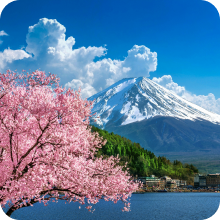Akihabara: From Electric Town to Anime and Otaku Paradise
Once a bustling hub for electronics enthusiasts, Akihabara has evolved into a mecca for otaku culture, attracting anime, manga, and gaming fans from across the globe. Known for its vibrant streets and colorful storefronts, Akihabara seamlessly blends its historical roots as "Electric Town" with its modern reputation as an "Otaku Paradise."
Join me, an experienced traveler with over a decade of exploring Tokyo’s hidden gems, as we journey through Akihabara’s fascinating transformation and uncover its must-visit spots.
The Beginnings of Electric Town
Akihabara’s history dates back to the post-war era when it became a hotspot for electronic goods. Known as "Electric Town," it was the go-to place for radio parts, household appliances, and other gadgets. Small family-run shops lined the streets, catering to Japan’s growing appetite for technology.
The Role of Akihabara in Japan’s Tech Boom
As Japan entered its economic boom in the 1960s and 70s, Akihabara solidified its reputation as a tech haven. It was a place where innovation thrived, and tech enthusiasts gathered to discuss, tinker, and purchase the latest gadgets.
The Rise of Otaku Culture
The 1980s and 90s saw a significant cultural shift in Akihabara. While still home to its iconic electronics shops, the district began attracting a new demographic: otaku. Anime, manga, and video game enthusiasts found a safe haven in Akihabara, where niche interests were celebrated rather than ridiculed.
The Birth of Akihabara’s Otaku Identity
Specialty stores dedicated to anime merchandise, doujinshi (self-published works), and retro games began to flourish. Events and conventions further cemented Akihabara’s status as the epicenter of otaku culture.
Akihabara: An Anime and Gaming Haven
Today, Akihabara is synonymous with anime and gaming culture. It’s a sensory overload of themed cafes, towering billboards featuring beloved characters, and stores packed with collectibles. Here are some must-visit spots:
Mandarake Complex
This multi-story store is a treasure trove of rare manga, anime merchandise, and vintage items. It’s a must-visit for serious collectors.
Sega Akihabara
The iconic Sega arcade offers multiple floors of gaming, from claw machines to rhythm games. It’s a nostalgic trip for retro gaming enthusiasts and a fun escape for everyone else.
Thanks for visiting our blog, are you planing to travel to Japan? Check out our Japan Sim Card.
Iconic Landmarks in Akihabara
Akihabara’s landscape is dotted with landmarks that highlight its cultural and historical evolution:
Akihabara Radio Kaikan
One of the district’s original electronics hubs, Radio Kaikan is now a mix of anime merchandise stores, model kit shops, and more.
Don Quijote Akihabara
This megastore offers everything from quirky souvenirs to cosplay outfits. Don’t miss the AKB48 Theater located within the building.
Thanks for visiting our blog, are you planing to travel to Japan? Check out our Japan eSIM.

Maid Cafes and Themed Experiences
No visit to Akihabara is complete without experiencing its quirky side, best exemplified by its themed cafes. These unique establishments provide a glimpse into the playful and imaginative spirit of otaku culture.
Maid Cafes
Maid cafes like @home Cafe and Maidreamin are known for their friendly "maids," who serve food and drinks while engaging guests with games and performances.
Anime-Themed Cafes
From Pokémon to Gundam, anime-themed cafes provide immersive experiences with character-inspired menus and decor.
Modern Akihabara: A Blend of Old and New
Despite its transformation into a pop culture paradise, Akihabara retains elements of its past. Electronics stores like Yodobashi Camera coexist with otaku-centric shops, creating a unique blend of tradition and modernity.
Continuing Evolution
As new trends emerge, Akihabara continues to evolve. From VR gaming centers to eSports arenas, the district remains at the forefront of innovation and entertainment.
Before you take off make sure to check with local government of the travel status.
FAQs
Why is Akihabara called Electric Town?
Akihabara earned the nickname "Electric Town" for its post-war electronics markets, which sold radio parts and other tech goods.
What is otaku culture?
Otaku culture revolves around intense enthusiasm for anime, manga, video games, and other niche interests.
What are the best times to visit Akihabara?
Most shops open at 10 AM and close by 9 PM. Weekdays are less crowded, while weekends offer a livelier atmosphere.
Are there family-friendly activities in Akihabara?
Yes, family-friendly activities include arcades, anime shops, and capsule toy vending machines.















